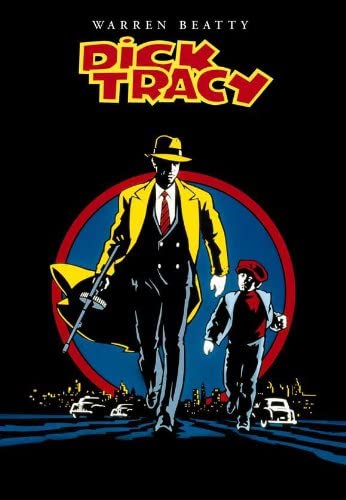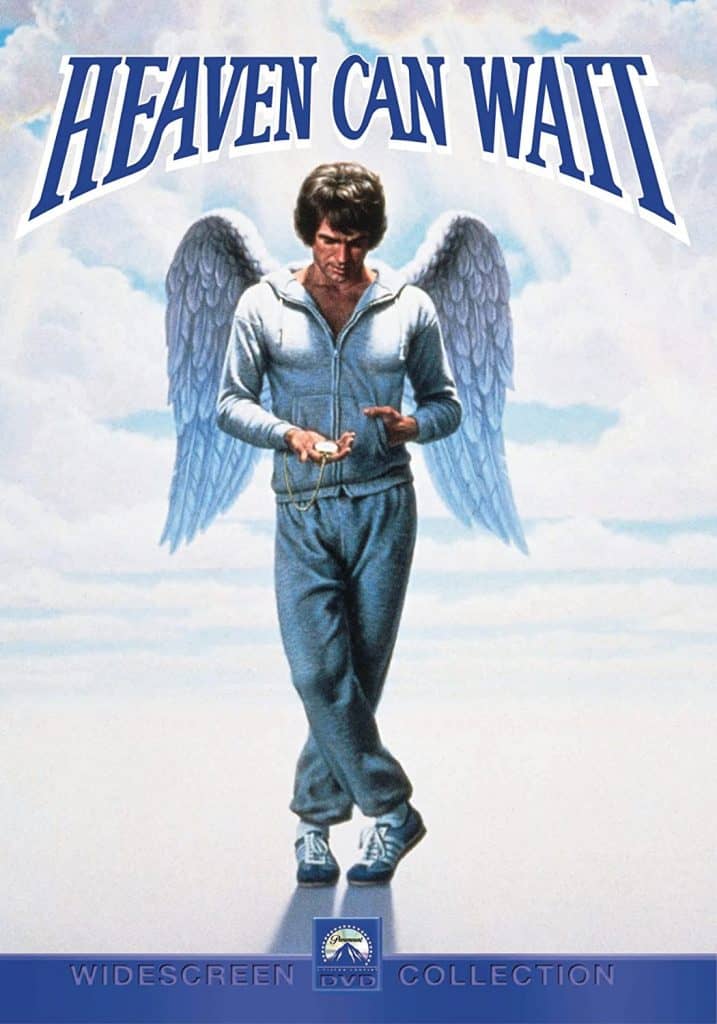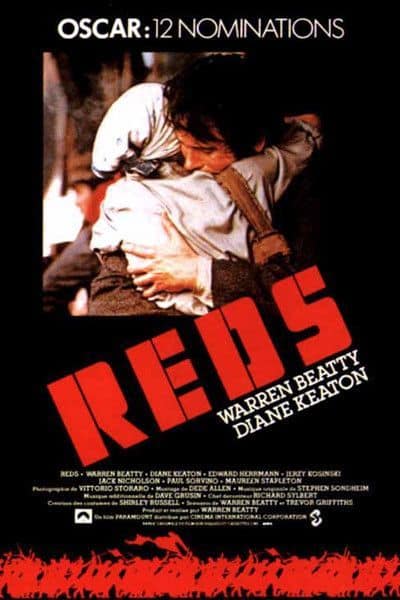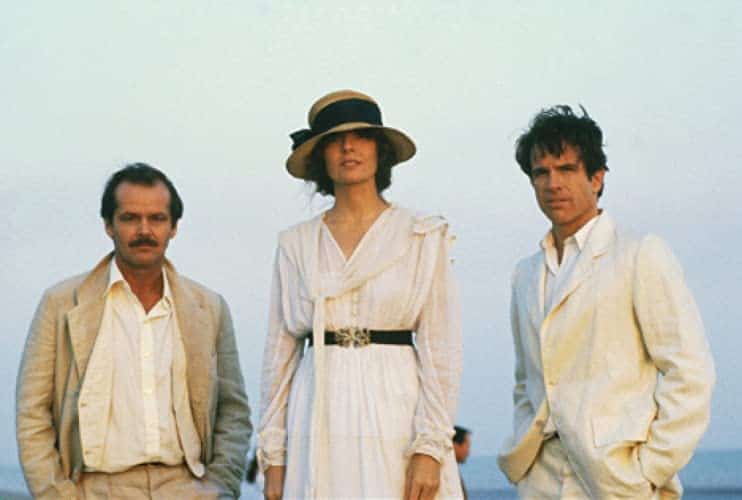Most younger audiences would probably only recognize Walter Beatty as one of two presenters of the botched Best Picture announcement in 2017, when Faye Dunaway announced La La Land as the winner over true winner Moonlight. That’s because Beatty all but retired following after his appearance in the 2001 romantic comedy Town & Country, and had really slowed down prior to that anway. Since transitioning from on-screen star to director in 1978, Beatty has only appeared in three movies that he did not direct: the legendary box office bomb Ishtar, the poorly-received 1994 remake of Love Affair, and the aforementioned Town & Country. Beatty’s acting career was selective—despite only appearing in 23 movies total over the last 60 years, he spent his early roles seeking out auteur directors. Beatty worked with Elia Kazan, Arthur Penn, Arthur Hiller, Robert Altman, Hal Ashby, Mike Nichols, and Barry Levinson.
Beatty’s directorial career is similarly selective, as he has made five movies over the course of the last 42 years: Heaven Can Wait in 1978, Reds in 1981, Dick Tracy in 1990, Bulworth in 1998, and Rules Don’t Apply in 2016. Beatty found massive success early in his behind-the-scenes work, twice getting nominated for Academy Awards for acting, writing, producing, and directing for the same movie.
Beyond his creative work, by all accounts Beatty was one of the friendliest people in the business despite his early days as a highly-publicized womanizer where he went to far as to earn the dubious honor of having ex-girlfriend Carly Simon write “You’re So Vain” about him. By 1987, improv comedy icon-turned-director Elaine May had been in director jail—deserved or not—for almost 11 years. Beatty had May do script work on Heaven Can Wait and Reds, and went to bat for her to direct Ishtar. While the film bombed and received viciously negative reviews, it can’t be said Beatty didn’t stick up for his friend. Likewise, in 1988, Beatty helped director and longtime friend Hal Ashby get medical help, which resulted in Ashby’s pancreatic cancer diagnosis. And Beatty was a longtime and active member of the Democratic Party, campaigning extensively for Richard Nixon’s 1972 opponent, George McGovern. Despite this, Beatty was chosen as a pallbearer for John McCain at the senator’s 2018 funeral.
The point being, he seems like a good dude. Anyway, here are his five directorial efforts ranked:
5. Rules Don’t Apply (2016)

On the surface, Rules Don’t Apply seems like it’s a pretty schmaltzy love story between a 1950s contract actress and her driver as they navigate Hollywood and their jobs as employees of Howard Hughes. It’s actually much stranger than that. Lily Collins plays the aspiring actress, Alden Ehrenreich the driver, and Warren Beatty the famed American entrepreneur in his older, reclusive era. Watching it, it’s kind of hard to discern whether the movie is supposed to be about these two young people coming together in a time and place where sexual politics were both repressed and contradictory or if it’s a portrait of a warped old capitalist who feels the need to dominate everything and everyone around him. The time spent on both plots takes away from the other, leaving the love story feeling trivial and the Hughes aspect feeling extracurricular. It’s a fascinating movie worth the watch if you love recreations of classic Hollywood-era or are particularly interested in Howard Hughes, but it’s pretty clearly the worst of the five films Beatty directed, which is unfortunate given that it’s also likely his last.
Watch it with: Bugsy (1992). Beatty initially met Annette Benning—who plays Lily Collins’ characters overbearing mother in Rules Don’t Apply—while filming this Barry Levinson mobster movie together. They’ve been married since, having only collaborated with each other on Bugsy, Rules Don’t Apply, and the 1994 remake of Love Affair.
4. Dick Tracy (1990)

Based on a 1930s comic strip and greenlit in the wake of the success of Tim Burton’s Batman, Beatty’s Dick Tracy looks different from almost any other movie released before or since. Establishing shots are often matte paintings, bad guys have absurdly shaped prosthetic faces, and a stark contrasting color palette. There are small moments where both the foreground and the background are in focus at the same time, helping to recreate the feeling of a two-dimensional comic strip. The movie is wild elsewhere, too: Beatty plays the title character and fills out the rest of the eccentric cast with quite a stable of actors. Madonna plays a nightclub singer and potential love interest, Al Pacino plays the city’s mob boss, Glenn Headley plays Tracy’s girlfriend, Dustin Hoffman plays a mumbling, unintelligible henchman-slash-informant; James Caan, Catherine O’Hara, and Mandy Patinkin play criminals; and Seymour Cassel, Charles Durning, Dick Van Dyke, and Cathy Bates play various characters on the right side of the law. I repeat: two-time Best Actor winner Dustin Hoffman plays someone who does not speak any words the audience can understand.
The strange stylization—a vision that Beatty brought to the project when he joined as lead actor while Walter Hill was set to direct—works really well for the movie, even as its plot casting Tracy as the only decent man left in the entire city fighting against crime and corruption doesn’t add much on its own.
Watch it with: Batman (1989). Both movies really nail the right level of camp that their source material calls for, populate their supporting cast with name actors, and began production years earlier with original scripts by Joe Mankiewicz, nephew of famed Citizen Kane screenwriter, Herman Mankiewicz.
3. Bulworth (1998)

It would have been hard to predict that Beatty would follow his massive Oscars success with a comic book adaptation nine years later, and even harder that he’d follow that up with this movie after an eight-year gap. On paper, going from communist epic to cartoonish mob movie to a movie starring Beatty as a suicidal senator who decides to start telling the truth through rap seems unconventional. But the movie’s tone and message are on par with Beatty’s earlier films, even when counting the bizarre experience of watching Beatty try to rap (I truly can’t tell if the movie would be better or worse if he was actually a good rapper.)
The titular J. Billington Bulworth, corrupt and casually racist, begins the movie by anonymously hiring a hitman to kill him, giving him the freedom to say whatever he wants. He starts to stretch his arms around in this newfound freedom by telling a predominately black church in South Central LA that the Democratic Party doesn’t actually care about them, but comes and panders to them whenever they need the votes. The idea of rap seems to occur to him as if he’s never heard it before in a nightclub and from then on we have to witness the almost-horrifying experience of watching Warren Beatty speak in syncopated rhyming couplets for basically the rest of the movie. While Bulworth himself is a pretty bumbling idiot who traffics more in the “fried chicken and liquor” style of racism than anything else, Bulworth the movie has some surprisingly smart things to say about race and class in a capitalist society. The movie certainly doesn’t portray Beatty’s character as a hero — although we are led to believe that a twenty-something Halle Berry would have any interest in a sixty-something Beatty — and the best thing it does is show Bulworth listen to the people he meets in the black community and later parrot those same ideas elsewhere.
Watch it with: Meet John Doe (1941). Both Bulworth and Frank Capra’s Meet John Doe are about when politicians finally start telling the truth, although in the latter’s case, there is no real politician. Barbara Stanwyck and Gary Cooper star as a newspaper journalist and a homeless man who together create a fictional politician posing as a real one.
2. Heaven Can Wait (1978)

In 1975, Beatty produced and starred in the Hal Ashby-directed Shampoo. It was the actor’s first crack at something other than acting, and the film was fairly successful at the box office and remains an engaging and crackling good watch. Beatty is a charismatic, womanizing hairdresser with dreams of opening up his own salon, and the movie is punctuated with a politicized background, set during Nixon’s election. Beatty followed it up with his debut as a director, an adaptation of a play by the same name written by Harry Segall. Beatty also stars (although his first choice was Muhammed Ali) as Rams back-up quarterback Joe Pendleton who is finally going to get his shot as the starter when he is killed in a motorcycle accident. But upon arriving in heaven, Pendleton finds he was taken by mistake, and negotiates his way back into a still-living millionaire’s body.
The movie is funny without feeling wacky and touching without seeming treacly. It’s ostensibly a screwball body-swap movie on its surface, even though its tone is much more in line with light-hearted dramas of the ’60s and ’70s. And the movie has a beating heart that it never tries to hide, even amidst displays of selfishness and depictions of death. Beatty stars alongside Julie Christie, James Mason, Jack Warden, Charles Grodin, and his co-director Buck Henry.
The movie was a huge success, nearly eclipsing $100 million at the box office, earning nine Academy Award nominations, and helped launch Beatty’s next project, the incredibly ambitious epic Reds. Beatty became the first person nominated for directing, producing, writing, and acting on the same film.
Watch it with: Goodbye Charlie (1964). This Tony Curtis/Debbie Reynolds vehicle was directed by Vincente Minnelli, based on a stage production, and centers on post-death body switching.
1. Reds (1981)

Beatty repeated the success he had with Heaven Can Wait with his follow-up, but on a much larger scale. Reds became just the second time someone was nominated for Academy Awards as actor, director, writer, and producer on the same movie, making Beatty not just the only person to do it once but the only person to do it twice as well. Reds is a sweeping epic that deals with huge ideas by constantly focusing on the small. Following journalist-turned-revolutionary Jack Reed and his activist-journalist sometimes-girlfriend Louise Bryant in the late 1910s, Reds is grand in scope, blending moments of revolution, intimacy, frustration, and music with documentary-style talking heads from real-life participants seamlessly. The movie makes its own case for existence more than halfway through it’s 185 minute runtime (there’s an intermission), when Jack speaks to a Bolshevik political figure, played by novelist Jerzy Kosinksi: “You don’t think a man can be an individual and be true to the collective, or speak for his own country and speak for the International at the same time, or love his wife and still be faithful to the revolution. You don’t have a ‘self’ to give.” As ambitious and surprising as the movie is, the most shocking part is just how socialist it is; this movie is not just about a man who believes in socialism, this movie believes in socialism. I wasn’t alive in 1981, but I was taken by how full-throated Reds decries capitalism and how passionately it advocates for some form of communism, and how the movie succeeded in Hollywood in spite of this.

The film was a huge critical success even though it barely made back its budget at the box office: in addition to Best Picture, Director, Actor, and Screenplay, the film received nominations for Best Actress (Diane Keaton as Louise Bryant), Best Supporting Actor (Jack Nicholson as playwright and poet Eugene O’Neill), Best Supporting Actress (Maureen Stapleton as activist Emma Goldman), Best Art Direction, Best Cinematography, Best Costume Design, Best Editing, and Best Sound for a total of twelve nominations. The film took home wins for Beatty as director, Stapleton, and cinematographer Vittoria Storaro.
Watch it with: nothing, it’s three hours and fifteen minutes long.
